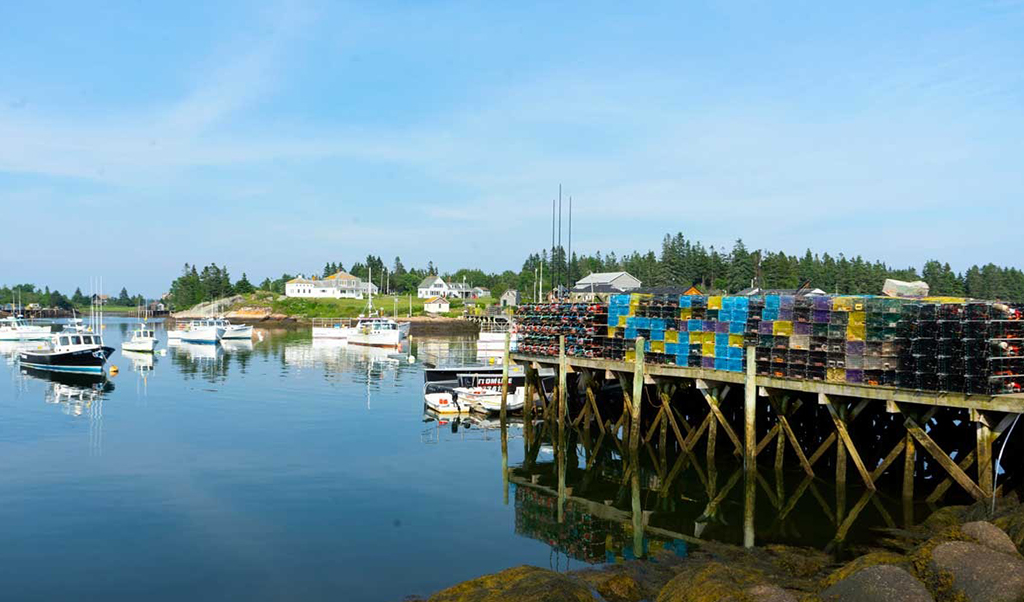It wasn’t just the sound of seagulls and waves lapping against the shore those four years I spent running my family’s Midcoast lobster wharf.
There was the whir of impeller blades pumping seawater into the lobster tanks. The roar of the propane blast heater, struggling to heat 200 gallons of water to cook lobsters or crabs. The metallic avalanche of another pound of ice being made in the back room.
In fact, my life was a cocoon of sound. When I started working for my family, I had little experience with the challenges of running a small business. Even so, it did not take me long to realize that these sounds of industry, in their near infinite variety, meant one thing—money out the door.
The bulk of what we purchased was energy, in its various forms. Diesel fuel for the boats, propane for the lobster cooker and to heat buildings, and most, of all, electricity—the lifeblood of our operation—to run everything else.
I remember the day I sat down with my father to calculate the cost of producing one pound of picked lobster meat. I recall, even more vividly, my reaction to the ledger showing that only about 50 percent of our cost was tied to what we paid fishermen for their catch. The remainder was energy and labor.
This highlights a critical, but little-known fact of our state’s seafood economy—from lobstermen to processors and dealers, much of the expenses are subject to variability. If there is one thing my humble, short-lived experience at the wharf taught me, it’s that uncertainty is the bane of any small business.
I struggled those four years to find ways to minimize this uncertainty, while watching money flow out of poorly insulated lobster holding tanks, or through the cracks in my office walls and floors; money in the form of wasted energy.
I saw this wasted energy as part of a larger problem. Inefficiency, and the often less than environmentally friendly way in which it is produced, have been driving changes in our Earth’s climate for generations. Nowhere was this clearer than on that small piece of working waterfront, where I held my son’s hand and told him how we used to sell Maine shrimp, and why we couldn’t do that anymore, and what that meant to families that relied on that winter fishery to bridge the gap between lobster seasons.
The impacts of climate change on Maine are well documented and they have been impacting the lobster fishery.
The uncertainty in lobster landings, weather, global markets, and the price and availability of bait all are hitting lobster businesses hard. From individual fishermen like my father, to the women of “Two Ladies Lobster” who now run my family’s wharf, and further up the lobster supply chain, everyone is working to reduce this uncertainty and make their businesses more resilient.
Reducing and stabilizing energy costs through energy efficiency upgrades and investments in renewable energy offer two great benefits to working waterfronts like my family’s. Reducing energy costs means more money can be made by a business, and perhaps squirreled away for an unforeseen expense (like the time my ice machine and bait cooler fan quit on the same day!). But these strategies also help to reduce carbon pollution, the driving factor behind climate change.
While I struggled to reduce energy costs for my family business, others are taking action towards this goal, and we don’t have to go far to find them. Just up the road from my family’s wharf is Community Shellfish in Bremen, where the owner has invested significantly in energy efficiency. A bit farther afield by car, but shorter by boat from my wharf, sits the Islesford Co-op and its roof covered by recently installed solar panels.
Theses trailblazers have made their moves, and here at the Island Institute, we are actively working with a key player in an exciting new partnership to decarbonizing the lobster supply chain (stay tuned for details).
For now, the sounds of the working waterfront still wrap me in a familiar blanket every time I set foot on a wharf. But two new sounds stand out these days. The whir of solar inverters and the thrum of high efficiency heat pumps now join the chorus, like voices from a future that waits just around the corner.
Sam Belknap is a senior community development officer working on aquaculture, climate, and energy for the Island Institute, publisher of The Working Waterfront.





